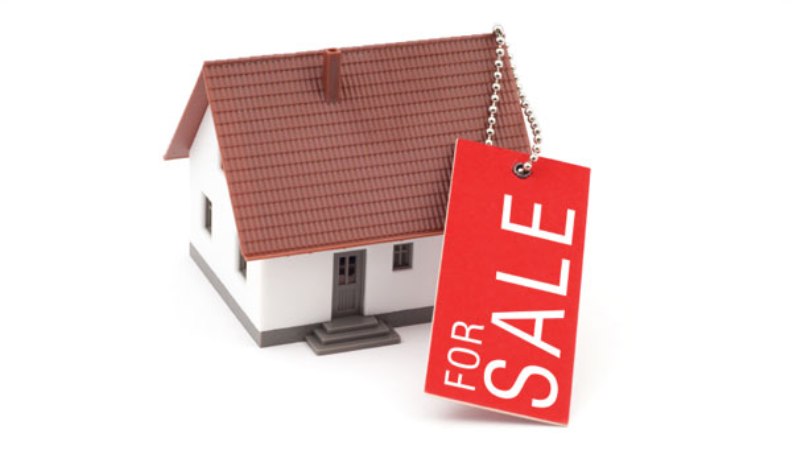Buying A Foreclosure vs. Buying A Short Sale

If you’re looking for a good deal on purchasing a home, or examining homes as potential investment properties that you can renovate and sell, you might be interested in purchasing a home in foreclosure or in a short sale.
Which, though, is better? What are the benefits and drawbacks of each?
Let’s look first at some similarities and definitions.
Foreclosures and Short Sales: Similarities and Differences
Both foreclosures and short sales occur when the initial homeowner becomes unable to make payments on the house. In some cases, the home buyer wants to move because the payments have become unmanageable. This occurs because the house is now worth less than the home buyer’s mortgage, known as an “underwater” mortgage. Job loss, divorce or high medical bills may also result in the initial home buyer’s inability to sustain mortgage payments.
If the homeowner cannot reach an agreement with the lender, the lender has a right to repossess and sell the house. This is because the lender issues promissory notes and mortgages with the understanding that the home is security for the mortgage. If payments are not made, the lender repossesses the home, so they can realize the profit from the mortgage and remove a nonperforming loan from their portfolio.
The second common feature of foreclosures and short sales is that each is highly negotiable. The price of either one depends on circumstances, the economic picture and home prices in your area.
The third common element is that prospective buyers need to make sure that there are no other liens on the property, such as a second mortgage.
Short sales and foreclosures have major differences as well. Short sales take place when the homebuyer still owns the house. In foreclosure, the homebuyer no longer owns the house. They may have left voluntarily or been evicted. The bank has repossessed the house and generally sells it at a public auction.
Short Sales: Advantages and Disadvantages
There are several advantages to a short sale. The first is that the price can be considerably below market price. The purpose of a short sale is to sell the property because the home buyer can no longer manage mortgage payments. A short sale can be more advantageous to the lender, because they don’t have to go to the trouble and expense of repossessing and then selling it.
If you’re interested in a short sale, you can make an offer to the current homeowner. You may even offer below the market value. That’s when negotiation kicks in. The line between advantages and disadvantages are not so clear.
There are three parties to the transaction: the short sale seller, the short sale buyer and the lender. The lender must approve any terms the seller agrees to. The fact that you have a seller to agree to a favorable price on the house may not necessarily mean anything. If the lender believes that they can get more through a foreclosure, they may not approve the terms.
A short sale will almost never be priced below a foreclosure price. The bank wants as much of the mortgage amount as it can get in both situations, but they’ll want more if they haven’t repossessed the house.
While short sales can be a vehicle to obtain a house at below market rates, they can also take a long time to process. The period time is much longer than a foreclosure. If you and your family are looking for a below market price home and need to move in a few months, it’s not advisable to look at a short sale. Do so only if you have a very flexible time frame.
There are several clear advantages to a short sale over foreclosures as well. One advantage to short sales is that you can look at the home and get an idea of its condition. The second is that, because the homeowner lives in the home until it’s sold, they continue its repair and upkeep.
A Foreclosure: Advantages and Disadvantages
The first major advantage to foreclosure is that lenders are motivated to sell the homes so that they can get the loans off their books. A foreclosure via auction can be priced up to 30 percent lower than the market price of the house.
The second advantage is that the homeowner will no longer live in the home. Negotiations are done with lenders and at auction only.
However, the fact that the homeowner is out of the picture can also be a disadvantage. First, some people in foreclosure may have damaged the home as a way of getting back at the lender.
Second, even if they haven’t, a foreclosed house may sit vacant for several months. Disuse and neglect may cause damage to the house or the fixtures.
If you plan to buy a foreclosed home to fix up and sell, assess whether the renovations could take more than 5 to 10 percent of the purchase price. The labor and energy you put into the house, plus the cost of the renovation, could end up negating the benefits of the lower price.
That brings us to the third disadvantage. Foreclosures properties are generally sold “as is.” You may or may not be able to inspect the property. It’s best to check with the auctioneer.
Short sales and foreclosures can be vehicles for getting homes at below market prices. Because negotiation is highly involved in each, it’s important to review and assess your individual situation before engaging in negotiations for either.





